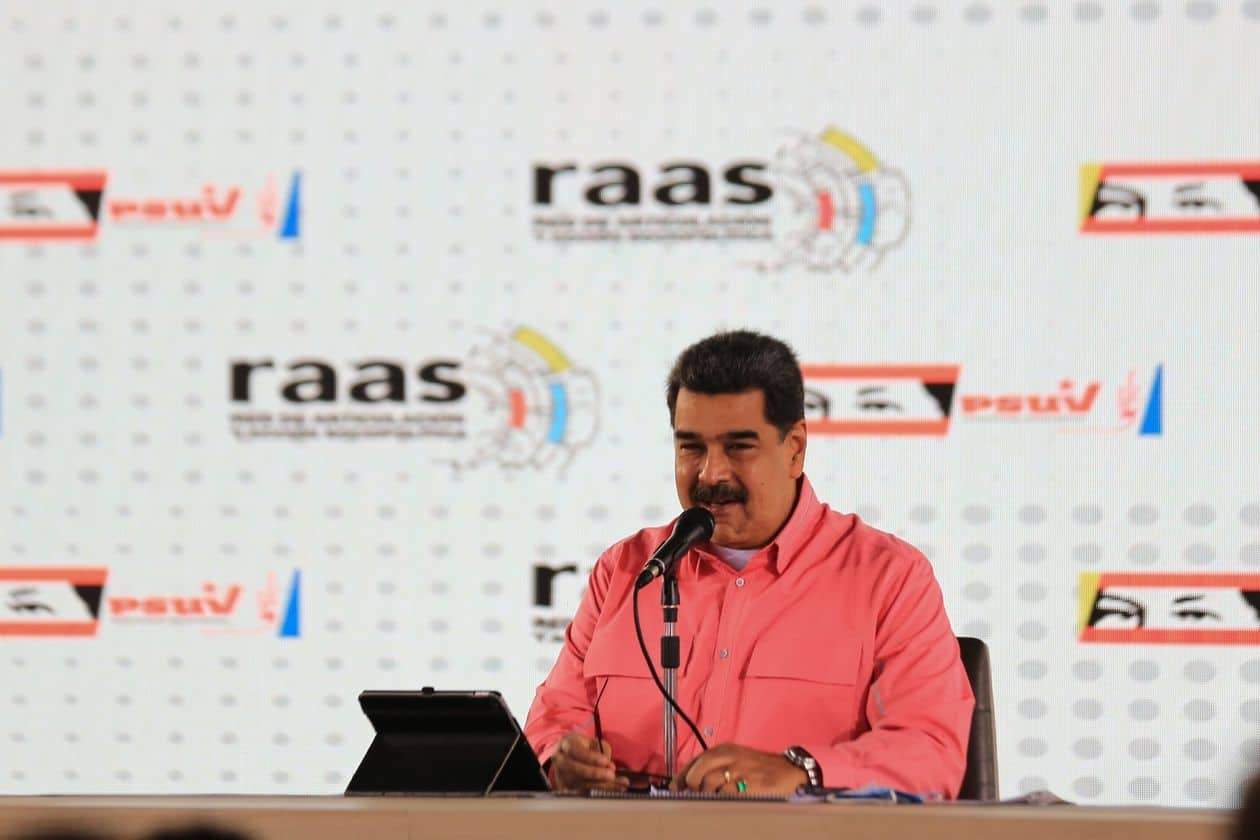U.S. Blacklists Chinese Defense Firm for Sales to Venezuela

WASHINGTON—The Trump administration on Monday blacklisted a major Chinese government-owned defense company it said sold goods to Venezuela that aided political repression by the regime of President Nicolás Maduro.
The U.S. Treasury Department said goods sold by China National Electronics Import & Export Corp., or CEIEC, helped the Maduro government restrict internet service and conduct digital surveillance and cyber operations against political opponents.
The action comes amid diplomatic tensions between Washington and Beijing across issues including commerce, espionage, military operations and relations with Hong Kong and Taiwan.
The sanctions precede a Dec. 6 parliamentary election in Venezuela that the U.S. says will be fraudulent. The Trump administration says the Maduro government fixed previous elections and maintains an illegitimate hold on power through repression of the political opposition.
The U.S. has backed the government-in-exile led by Juan Guaído as the country’s only legitimate authority. The U.S. views the Maduro government as a major security threat, citing its relationships with Iran, China, Russia and South American drug cartels.
“The illegitimate Maduro regime’s reliance on entities like CEIEC to advance its authoritarian agenda further illustrates the regime’s prioritization of power over democratic values and processes,” Treasury Secretary Steven Mnuchin said in a statement.
CEIEC didn’t immediately respond to a request for comment.
The Maduro government called the sanctions an effort to destabilize the country ahead of the parliamentary elections.
“Despite these attempts to create anxiety and attack the functioning of the public institutions...we will not be intimidated by any action,” the government said. The statement didn’t address the specific allegations, but has previously characterized Washington’s accusations as propaganda.
The Treasury Department said CEIEC has provided software, training and technical expertise to Venezuela government entities since 2017, including cyber support and experts to state-run telecommunications provider Venezuelan National Telephone Co., which controls 70% of the country’s internet.
Treasury said the suite of software and hardware that CEIEC provided Venezuela is a commercialized version of China’s “Great Firewall,” a nationwide system of web blocks and filters used to maintain strict online censorship and control the flow of information from outside China.
The company managed a $1.2 billion surveillance project in Venezuela, which installed 30,000 cameras in the country, according to an academic paper published by the U.S. Air Force. More recently, the Treasury Department linked CEIEC to an information blackout during an April 2019 uprising against the Maduro government, social-media restrictions during a leadership vote in the National Assembly in January and a government-run phishing operation targeting personal information on a humanitarian aid website
The Treasury Department said U.S.-based companies and individuals have 45 days to wind down operations with the state-owned firm and any of the over 200 subsidiaries it owns and controls around the world.
CEIEC was previously sanctioned by the U.S. State Department in 2007 under nonproliferation-related powers for allegedly selling banned arms technology to Iran and Syria. That blacklisting prohibited U.S. government contracting with the Chinese company and any new export licenses for U.S. companies to supply CEIEC with controlled technology. Treasury’s blacklisting Monday is far more extensive, barring any U.S.-based businesses or individuals from doing business with the company.
CEIEC’s website advertises electronic warfare capabilities, including goods and expertise in so-called C4ISR, an acronym used in the defense and intelligence communities for Command, Control, Communications, Computers, Intelligence, Surveillance, and Reconnaissance.
“We are now close partner of many foreign government, military and security department, to help them fulfill their mission of securing citizen’s confidence to health, safety, economic growth and public governance,” the Chinese company says on its website.
CEIEC has operations in scores of countries across the world, according to the firm, with 24 overseas offices, half of which are located in states led by regimes considered among the world’s most authoritarian.
“The Trump administration is racing to put in place as many constraints on China Tech Inc. as possible before the end of its term,” said Scott Kennedy, a China analyst at the Center for Strategic and International Studies, a Washington-based think tank. CSIS describes itself as a bipartisan, nonprofit policy research organization.
While Treasury’s financial sanctions can be quite debilitating, “the speed and breadth of the damage to CEIEC and its customers is hard to predict,” Mr. Kennedy said.
Photo: The U.S. views the government of Venezuelan President Nicolás Maduro as illegitimate. - MIRAFLORES PALACE/EPA/SHUTTERSTOCK
Link: https://www.wsj.com/articles/u-s-blacklists-chinese-government-firm-accused-of-supporting-maduro-regime-11606750515




